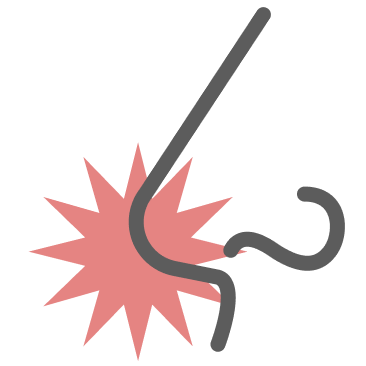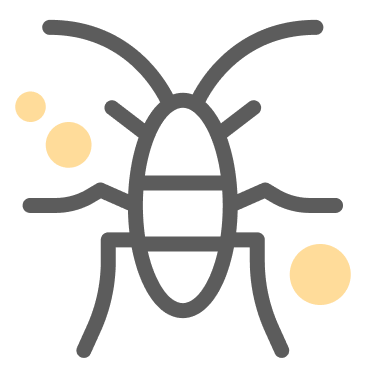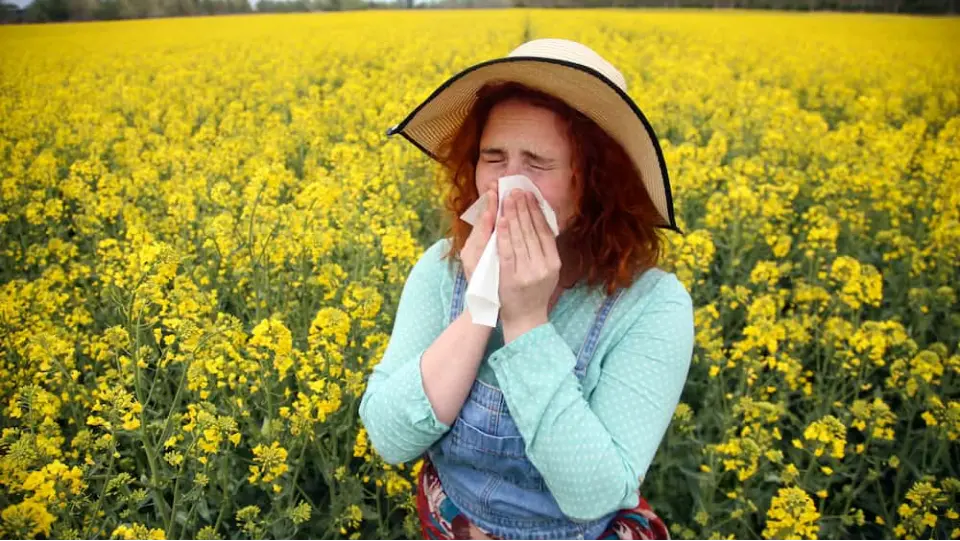Can Allergies Cause a Runny, Itchy Nose?
Yes, allergies can be one of the leading causes of a runny, itchy nose – not to mention a range of other nasal allergy symptoms1. These common reactions are part of your body’s defense mechanism against foreign substances, such as allergens.
When exposed to an allergy trigger like pollen or dust, your immune system releases histamine, which makes your nose produce extra mucus to trap and keep allergens out of the lungs. Histamine also causes an itchy nose, runny nose and sneezing to try to get rid of the foreign substance2.
Such symptoms are common signs of hay fever – also known as seasonal allergic rhinitis. As this affects around one in five Americans3, you’re far from alone if you’ve experienced it.
Understand more about the causes, symptoms and itchy nose relief available with ZYRTEC® today.
Common Nasal Allergy (Allergic Rhinitis) Symptoms
Aside from an itchy, stuffy, or runny nose, there are various other potential signs that you may have allergies. Common allergic rhinitis symptoms may also include1:

Sneezing: Itchiness inside your nose can result in sneezing, in an attempt to get rid of the allergen.

Stuffy Nose: This can cause a congested feeling, making breathing through the nose harder.

Postnasal Drip: As your body produces more mucus to fight off allergens, it can run down the back of your nose and throat, creating the need to regularly clear it.

Sinus Congestion: Fluids can become trapped in your sinuses due to inflammation, blocking them and increasing pressure and pain in the sinuses and nasal passages.

Tickle in Nose: A light irritation may cause a slight itch, often resulting in a sneeze.
Allergens that Can Cause Allergic Rhinitis Symptoms
There are two main categories of allergens that may be behind a reaction – seasonal or year-round allergies.
Seasonal allergies – these only cause allergic rhinitis symptoms at certain times of the year, usually due to certain pollen from trees or grasses being more present in the air.
Perennial allergies – symptoms for these allergies can occur throughout the year, as allergens such as dust or pet dander are constantly present in your space.
When it comes to allergens, some of the most common itchy and runny nose causes can include4:

Pollen: Grass, tree, weed, and other pollen are common triggers for allergies1. Depending on the pollen you’re allergic to, it may only affect you during certain seasons.

Mold and mildew: Indoor mold can be present throughout the year, especially where water collects in bathrooms and damp basements. Outdoor mold is also common on logs and leaves. Breathing in mold spores may lead to nose irritation and sneezing5.

Dust mites: Microscopic mites can live almost anywhere, even in the cleanest homes. When their feces attach to household dust, it can trigger an allergic reaction in some people.

Pet dander: Contrary to popular belief, it’s not the fur itself, but the protein in animal saliva that collects on animal fur and skin, that may cause allergy symptoms to flare up.

Bugs and Insects: Similar to dust mites, the feces, saliva and dead body parts of certain insects can be a common trigger for allergies too6.
Allergic Rhinitis Tips: How to Stop a Runny, Itchy Nose from Allergies
Use a neti pot7
Take antihistamines
Turn on your air conditioner
Track pollen conditions and avoid time outside on high pollen days
Wash your clothes and bedding
Home Remedies and Lifestyle Measures for a Runny, Stuffy Nose
Exercise right! Be sure to check the weather and go for a run when the pollen count is lower, avoid outdoor fitness when it’s windy, and consider steering clear of places with lots of trees and grass.
Use a neti pot8. This is a container filled with a saltwater solution , which you use to rinse mucus and allergens from your nasal cavity.
Clean sheets and pillowcases. This can help to remove indoor allergens like dust, and reduce the chance of triggering your allergy symptoms at night. Additionally, be sure to keep pets out of the bedroom and discard old mattresses to help further reduce allergens.
Turn on your air-conditioner or a dehumidifier. Removing moisture from the air can help limit mold and mildew growth.
Track your allergy symptoms with our ZYRTEC® AllergyCast tool.
Allergy Medicines for Runny, Stuffy Nose
There are various over-the-counter (OTC) allergy medicines, also known as antihistamines, which can help relieve a runny or itchy nose.
ZYRTEC® products contain the antihistamine cetirizine, which works to relieve your allergy symptoms and provide 24-hour relief.
Explore the below ZYRTEC® antihistamine products, to see if one might be the best option to relieve your runny, itchy nose or stuffy nose:
When to See a Doctor
If medicine for an itchy nose isn’t providing relief, or you experience side effects that are causing you concern, you should see a doctor. If you have another condition that may worsen your symptoms – such as nasal polyps, asthma, or a sinus infection – seeking medical advice is a good idea in general, too1.
References
https://www.mayoclinic.org/diseases-conditions/hay-fever/symptoms-causes/syc-20373039
https://my.clevelandclinic.org/health/diseases/8622-allergic-rhinitis-hay-fever
https://www.health.harvard.edu/diseases-and-conditions/allergic-rhinitis-your-nose-knows
https://www.mayoclinic.org/diseases-conditions/mold-allergy/symptoms-causes/syc-20351519
https://acaai.org/allergies/allergic-conditions/cockroach-allergy
https://www.mayoclinic.org/diseases-conditions/common-cold/expert-answers/neti-pot/faq-20058305
Links to other parties’ articles and websites are provided for convenience only. Kenvue is not responsible for their content.




